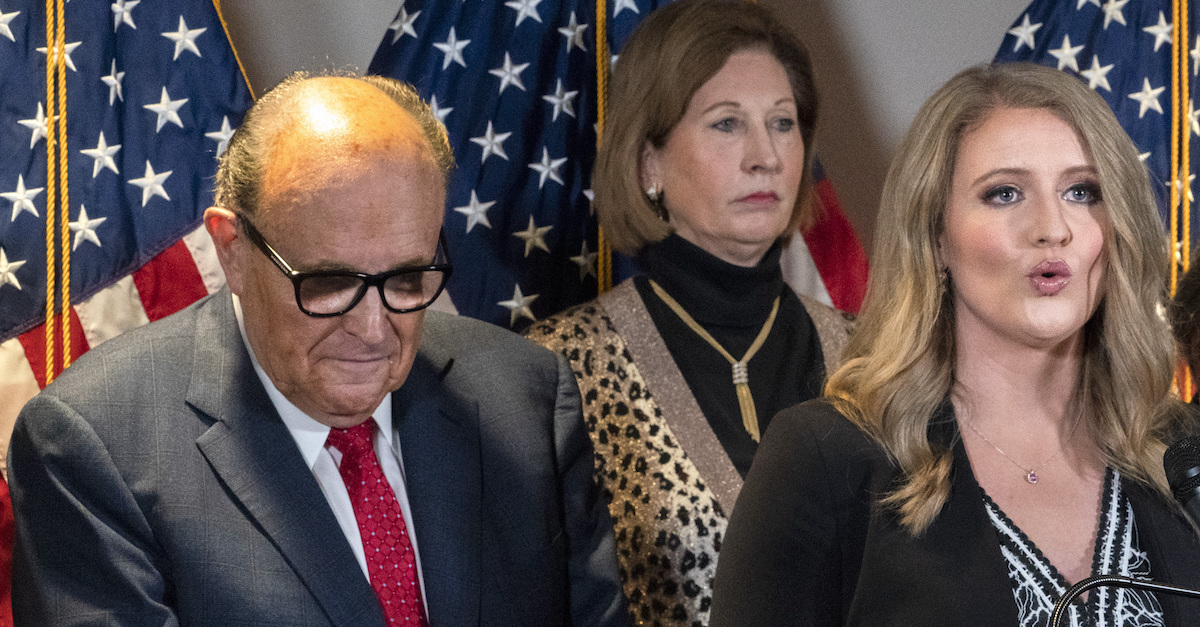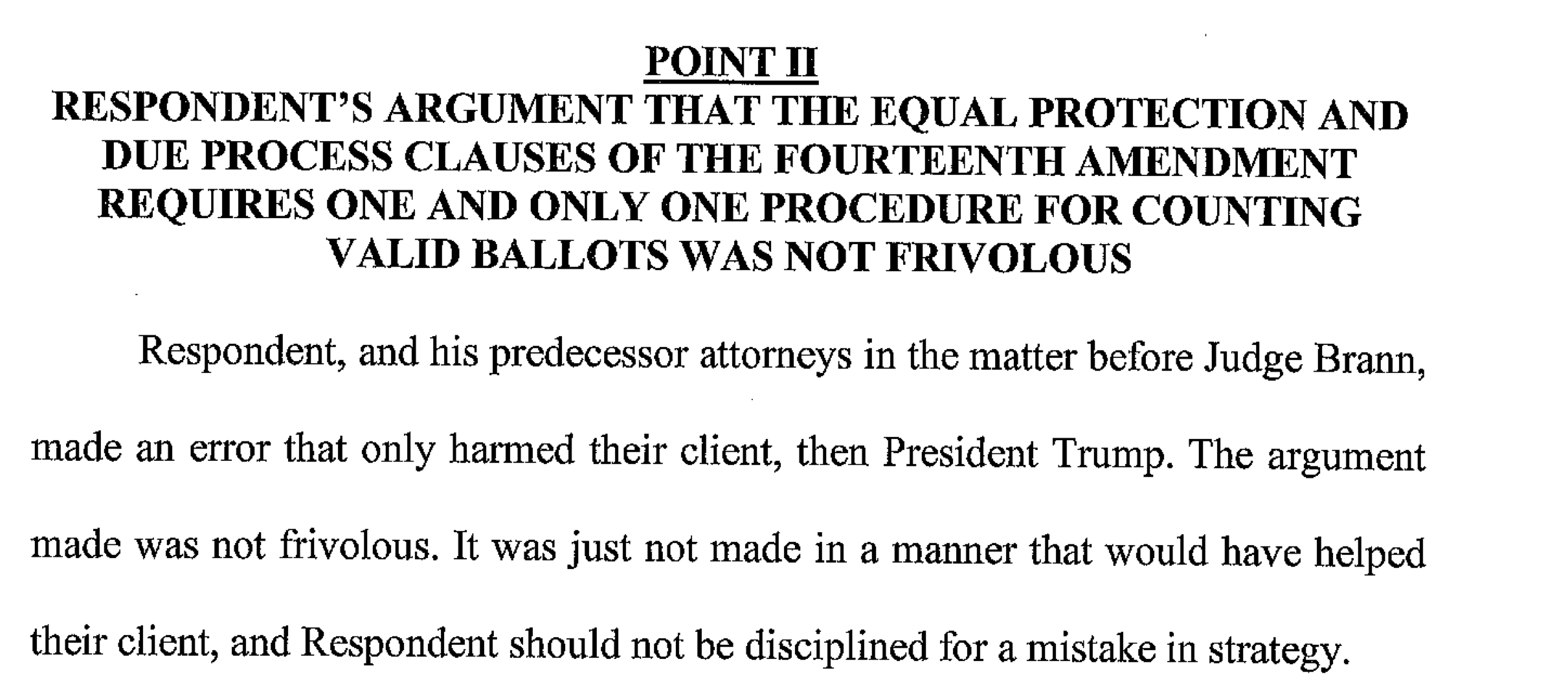
Members of President Donald Trump's legal team, including former Mayor of New York Rudy Giuliani, left, Sidney Powell, and Jenna Ellis, speaking, attend a news conference at the Republican National Committee headquarters, Thursday Nov. 19, 2020, in Washington. (AP Photo/Jacquelyn Martin)
On the same day Rudy Giuliani yelled during a bankruptcy hearing that ended with the judge leaning towards throwing the case out, his attorneys fought to save his law license in Washington, D.C., asserting that there simply wasn't enough time to vet client Donald Trump's ill-fated 2020 election challenge in Pennsylvania before his memorable argument in court.
Lawyers with Aidala Bertuna & Kamins, PC responded Wednesday to a May disbarment recommendation by the District of Columbia Court of Appeals Board on Professional Responsibility.
That recommendation, which preceded Giuliani's disbarment in New York, stated that stripping Giuliani of his law license was the "only sanction that will protect the public, the courts, and the integrity of the legal profession" from future "frivolous" stolen election challenges.
Giuliani's lawyers have now replied by emphasizing the "chaotic" time crunch he was operating under that November 2020, when in the "eleventh hour" and "at the last possible moment" the former NYC mayor was "pressed into service" for Trump.
"Contrary to the findings of the Committee and the Board, the evidence established that Mr. Giuliani was enlisted by local counsel in Pennsylvania to intercede at the eleventh hour to assist in litigation commenced by other attorneys. His participation and advocacy must be viewed by the Court in this context," the filing said, also describing the situation as utterly unique to Giuliani's legal experience.
"Mr. Giuliani was representing a client in a fast-moving election law challenge that did not permit him to investigate fully his client's position as he would normally do in any other case," the brief said.
While the disbarment recommendation said that Giuliani brought a case without a basis in law and engaged in "conduct that is prejudicial to the administration of justice" by arguing an "'illegal' mail-in ballots" and unlawful ballot canvassing (see: lack of poll-watching access) case which "did not have a faint hope of success," as there were "not enough cured ballots to change the election results even if all of the cured ballots were deemed to be Biden ballots," the response from Giuliani's attorneys said there was no way of knowing the specifics under the circumstances.
"However, no one could have possibly known how many ballots were not allowed to be cured or were allowed to be cured; this may have affected the election result in Pennsylvania and could only have been determined through discovery or trial," the brief continued. "Thus the remedy sought was not frivolous, and thus, was not a violation of Rule 3.1."
"It is also clear that if there were no violation of Rule 3.1, then there was no violation of Rule 8.4(d)," Giuliani's attorneys added.
The brief said Giuliani was operating under a "theory espoused" by a Trump campaign lawyer who exited the case, and what followed was little more than a "mistake in strategy" that harmed Trump alone.

"At worst, this was a mistake and perhaps negligence hurting only the client, then President Trump, but it was not a frivolous lawsuit," Giuliani's lawyers said.
If any punishment is to be handed down, it should be suspension, the lawyers asserted.
"Since Mr. Giuliani did not violate the Rules of Professional Misconduct, the Board's findings should be reversed, and no sanction should be imposed. In the event the DC Court of Appeals disagrees with our conclusion […] then considering the attendant facts and unique circumstances of this case, and Mr. Giuliani's unblemished disciplinary history and his contributions to public service, a lesser sanction that disbarment should be imposed," the brief added.
Comments